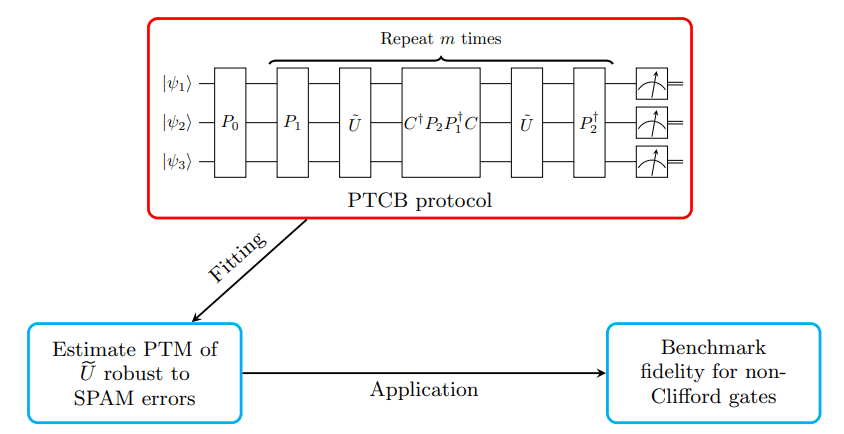Gate benchmarking, a crucial process in evaluating the performance of quantum computers, frequently suffers from inaccuracies caused by errors in preparing and measuring quantum states. Han Ye, Guoding Liu from Tsinghua University, and Xiongfeng Ma address this long-standing challenge with a new method called Pauli Transfer Character Benchmarking. This innovative protocol estimates key channel properties using only readily implementable local Pauli operations, overcoming limitations faced by existing benchmarking techniques when applied to non-Clifford gates. The team’s approach delivers a robust fidelity benchmarking method, demonstrably effective for complex gates like the Toffoli gate, and represents a significant step towards reliable performance assessment of advanced quantum computing hardware.
Quantum gate benchmarking is unavoidably influenced by state preparation and measurement errors. Randomized benchmarking addresses this challenge by employing group twirling to regularize the noise channel, and it provides a characterization of quantum channels that is robust. This work investigates benchmarking non-Clifford gates using only the Pauli twirling group, a method that simplifies the benchmarking procedure and reduces the experimental overhead. The research demonstrates that accurate benchmarking remains possible even with this restricted twirling group, offering a practical advantage for near-term quantum devices. This approach allows for the characterization of gate fidelity without requiring complete knowledge of the noise affecting the quantum system, and it provides a valuable tool for assessing the performance of quantum gates in realistic experimental settings.
To address these errors, the team employs exponential fittings. Existing Randomized Benchmarking methods leveraging local twirling gates, however, face fundamental challenges when benchmarking non-Clifford gates. Building on this protocol, the researchers develop a fidelity benchmarking method for non-Clifford gates that satisfy the condition of being their own inverse, and they validate the feasibility of their protocol.
Qubit Performance and System Scaling Progress
This compilation of research papers covers a broad range of topics in quantum computing, quantum error correction, and related fields. The work explores advancements in building and controlling qubits, the core components of quantum computers, detailing qubit counts, coherence times, and gate fidelities, representing the current status of the field. Many papers focus on specific qubit technologies, including trapped ions, superconducting qubits, and photonic qubits, each with its own strengths and challenges. A major theme throughout the list is quantum error correction, essential for protecting fragile quantum information.
Researchers investigate surface codes, topological codes, and concatenated codes, aiming to encode quantum information in a way that is robust to errors. The work also explores fault-tolerant quantum computation, decoding algorithms, and the creation of logical qubits to improve reliability. Active error correction, involving real-time monitoring and correction of errors, is also a prominent area of investigation. The list also includes research on quantum algorithms and software. Variational quantum algorithms, quantum machine learning, and quantum optimization are explored as potential applications for near-term quantum computers.
Researchers are developing quantum compilers and programming languages to translate high-level programs into instructions that can be executed on quantum hardware. Demonstrations of active quantum error correction and the creation and characterization of logical qubits represent major milestones. Research on variational quantum algorithms and their applications is crucial for near-term quantum computers, and quantum simulation of materials and molecules is a major application area. Existing benchmarking methods struggle with non-Clifford gates due to limitations in handling noise, but this work overcomes this challenge by focusing on characterizing how noise affects the transfer of Pauli operators, fundamental building blocks of quantum information. The protocol utilizes a series of carefully designed quantum circuits and statistical analysis to extract key parameters describing the noise channel, providing a robust measure of gate fidelity.
The team demonstrates that by leveraging the properties of Pauli operators and Clifford gates, they can effectively isolate and quantify the impact of noise on quantum operations. This approach allows for a more precise characterization of gate performance than previously possible, paving the way for improved quantum error correction and more reliable quantum computations. Through numerical simulations using the Toffoli gate as an example, the researchers validate the feasibility and accuracy of their method.
The authors acknowledge that the computational and quantum resources required for this protocol increase with the number of qubits involved, and that variations in circuit depth can influence noise characteristics.

